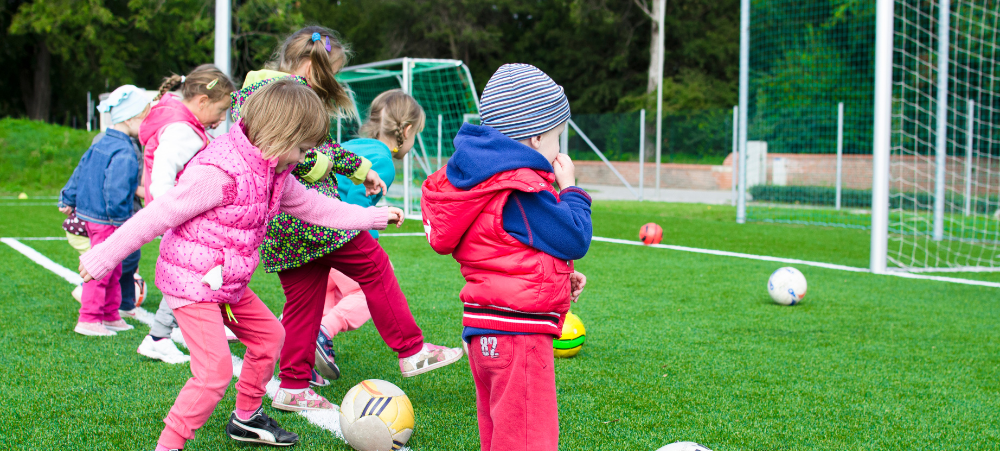What is “play”? Well, think of it this way, play is a medium that all children use to explore and experience the world around them. It is the best teacher your child can have. The best “play” is motivated, spontaneous, and focuses on the process rather than the product. The idea is for them to have fun even if there is a specific outcome you are trying to accomplish. Children love to use their imagination, and to get creative, “play” should be free of rules so that they have the freedom to create their own games, experiences, and ideas. This helps them create a new world in which their reality experience can be reflected. The main goal is to learn; all children learn best when having fun!
During “play,” children are constantly thinking, problem-solving, developing memory, planning and investigating, concentrating, and developing language and social skills. “Play” contributes to your child’s physical, cognitive, social, and emotional development throughout their lives. This is why play is so important. As parents and teachers, we must ensure that our children have stimulating environments that encourage play and creativity and allow them to use their imagination throughout their day.
There are many different stages of play that a child will go through and experience from birth through early childhood. These stages of play are based on and refer to the levels of social interaction during play or the main characteristics of the types of play a child can use or take part in based on their already developed skills. Some examples of these stages of play include:
Unoccupied play is your baby’s random movements with no purpose or thought. This is the first initial form of play a child will experience. They will rely on their parents to create different stimulation. Solitary play is when children play alone and independently without noticing other children playing around them. Onlooker play is when children watch and observe others play and perhaps ask questions but do not join in.
In parallel play, children play side-by-side but without interacting directly. This is the first step of socialization. They will begin to play together and interact in associative play, but there will be no coordination in the game or activities.
Cooperative play is when children start interacting and participating in group games and activities with specific goals like “hide and seek.” This is vital for team and future leadership skills.
There are different types of play that can be identified. The types of play are based on and refer to the specific type of activity involved and skills being learned, such as language or construction. Types of play can include: Constructive play is play that involves building and creating. This type of play supports visual, spatial, fine motor, and math skills.
Physical play is any play with physical activities that support muscle development, healthy exercise, and coordination.
Expressive play is any play that allows children to express feelings. This can be through art, music, and writing or telling stories. This is vital play to inspire creativity.
Competitive play is play that will help children learn about rules, fairness, and taking turns. These can be games, and activities like Simon says or races on the playground.
Fantasy play is when children have the freedom to use their imagination and think beyond their world. This is good for learning creative problem-solving. Digital play this type of play would involve modern-day technology such as tablets, cell phones, or laptops. Children are growing up in a digitally influenced world, so
it is important to teach them these skills. This would be considered solitary play but will still impact their social skills like eye contact and attention. It is important to remember that your child needs to experience all types of play to learn the necessary life skills needed to grow into independent thinking adults.
- SCREEN TIME AND ITS’ EFFECT ON LANGUAGE DEVELOPMENT - March 15, 2024
- Is your child a bully? - March 12, 2024
- Emotional and Social Milestones of a 6-year-old - October 17, 2023





